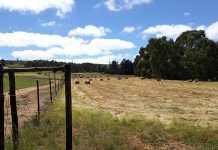
BEE scorecards are used to force companies to spend time and money on empowering previously disadvantaged indviduals. Large listed commercial entities issue additional shares to reach the required shareholding by designated individuals and groups.
READ:Why we need to follow India’s example
This is done legally, but in my opinion it is not morally or ethically correct. For example, in a company with one million issued shares and worth R1 million, every share has a value of R1. If this company then issues another 500 000 shares and gives these to previously disadvantaged people, the value of the shares owned by the original investors decreases to R0,67.
The actual methods by which this was done were much more complicated than my simple example suggests, but the decrease in value is exactly what happened. While the process has indeed empowered some previously disadvantaged individuals, to borrow from Animal Farm, some were more empowered than others. In fact, a new group of millionaires and even billionaires was created.
In some cases these transactions also resulted in asset stripping and other questionable actions. Farms are different from other companies, and black economic empowerment can get very tricky – and emotional.
Agri BEE
Commercial farms are largely individually- owned businesses. Even ‘mega-farms’ – the current flavour of the month – are in nearly all cases owned by a single farming family or a group of families. It is therefore impossible to give a share in the business to ‘outsiders’, especially since, in most cases, commercial banks actually ‘own’ up to 50% of farm assets as security for long-term and other loans.
Recently, government spokespeople came up with the bright idea of demanding that farmers give, free-of-charge, a certain percentage of their farm land to their workers. While most farmers pointed out the impossibility of this, there were some voices who hailed this as a real solution to the problem of putting more land in the hands of black people.
Some very big farmers might be able to give a piece of land to their workers, especially if, in doing so, they can secure an agreement from government that they will not be bothered with land claims in future. Then again, while this may sound like a good deal, even a guarantee from government can change very quickly.
Equity schemes
Since 1994 a few highly successful BEE projects have been developed by farmers. These share-equity schemes have used RDP funding and soft loans from commercial banks to buy farms and develop these as joint ventures between the farmer and their workers.
For many farmers, a share-equity scheme is the only way to go. The Milk Producers’ Organisation recently published a manual covering share equity schemes and spelling out the steps to start such a scheme. (Copies are available at www.mpo.co.za.)
Strategies for other farmers
On the other hand, many farmers are no longer interested in increasing their responsibilities to their workers or do not want to operate joint ventures. For them, a viable strategy is to just forget about BEE and keep on farming normally. From time to time, they might face pressure from agribusinesses and retailers who need to buy products from BEE-certified suppliers. But farmers who are reliable suppliers of high quality products usually find that this overrides any BEE requirements.
It is very difficult for most farmers to comply with the property ownership requirement of the BEE scorecards. It is easier to comply with the other social aspects. It makes good business sense, too, for farmers to spend money on the development of their farm workers. There are various skills development programmes that can be used to educate and train a worker to become a supervisor or even a manager of a farm business.
Good housing, the provision of educational facilities for workers’ children, the provision or facilitation of health services for workers and their families, and schemes to empower workers’ spouses to earn an income through home industries all contribute towards a happier, more productive and stable workforce. All this makes good economic sense.
Conclusion
Politicians will keep on promoting their hare-brained schemes, and organised agriculture will keep on negotiating. But until such time as a reasonably detailed road map for future land reform and BEE is finalised, the prudent strategy for individual farmers is to ignore BEE and spend time and money on improving conditions for their own workers.
Dr Koos Coetzee is an agricultural economist at the MPO. All opinions expressed are his own and don’t reflect MPO policy.



